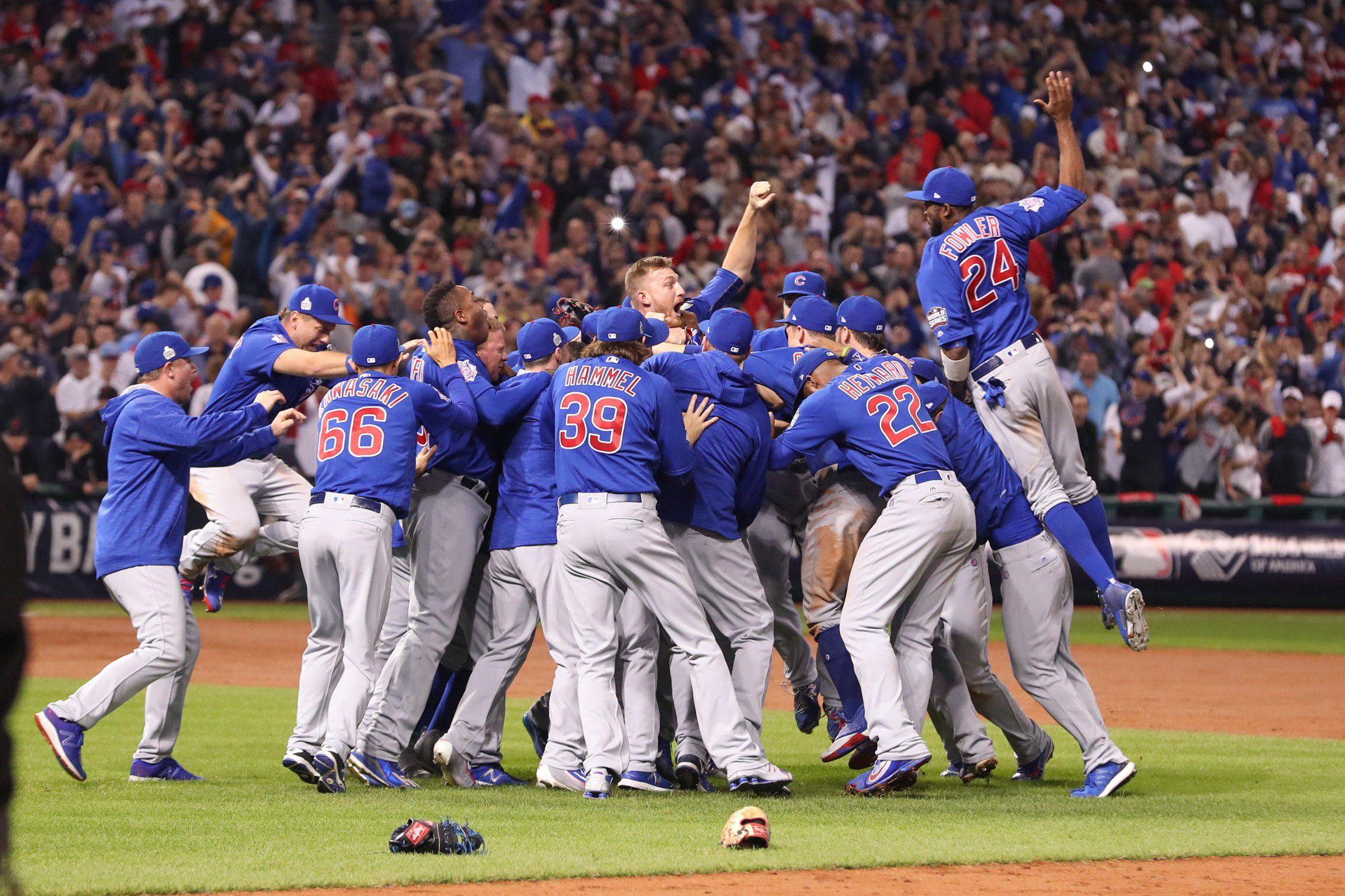“The wait is over.”
How many sports articles did you read in 2016 that started like that? How many long-suffering fans were shown shedding tears over an improbable title? How many athletes said, “[Hard-luck city], this one’s for you”? Probably quite a lot. That’s because the defining sports feature of 2016 was that it was the year of the historic victory — maybe even the end of the historic victory, given how many were put on the board.
The Chicago Cubs won their first World Series since 1908, ending the most famous drought in American sports. They beat the Cleveland Indians, who were one run away from winning their first World Series since 1948. If Clevelanders weren’t too broken up, it’s because a few months earlier the Cavaliers had won the city’s first title since 1964, when Jim Brown ran over the Colts in the NFL championship game.
Leicester City’s preseason odds of winning its first English Premier League title were either 5,000-to-1 or 2,500-to-1, depending on your sports book. After all, the team had returned to the Premier League only the season before. This year, the Foxes won the title. It was as if a new era of football had dawned. “The old order has broken,” Football Association chairman Greg Dyke declared.
In Australia, where I spent a few days this fall, there were even more improbable Cinderella stories. The Western Bulldogs, a hard-luck Australian Football League team based in Melbourne’s suburbs, won their first premiership since 1954. It was the moment Bulldogs fans could “look down on all of those lochs born of tears,” one writer noted, “and know the wait is over.”
The Cronulla-Sutherland Sharks, an Australian rugby team, won a premiership, too — their first in 50 luckless years of existence. In the locker room after the match, the players sang a hearty rendition of the team song. (Sample lyric: “Up the Sharks!”) Then they began demanding the free trip to Las Vegas that ownership had promised in the event of a title.
When a team ends a decades-long title drought, sportswriters observe certain journalistic rites. They will locate the moment when history turned on a dime. On the flight to Oakland for Game 5, LeBron James’s teammates gathered round a tablet computer to study game film and refocus. During a rain delay in Game 7 of the World Series, the Cubs’ Jason Heyward pulled his teammates into a weight room for a pick-me-up speech after the Cubs had squandered a three-run lead.
Next, writers will seek out diehard fans who’ve been keeping a vigil for decades. ESPN’s Wright Thompson talked to a 93-year-old Cubs fan who wound up dying between Games 2 and 3 of the World Series. SI’s Tom Verducci found a Cubbie-loving ex-politician who died just hours after Game 7 ended. The man had gone to sleep that night, Verducci reported, “with a smile on his face.”

Friends and family of deceased Cubs fans scrawled their names in chalk on an exterior wall of Wrigley Field so that they could fly the W in the afterlife. (The wall was cleaned a few days later as part of stadium improvements.) Winning a title became a quasireligious event. As a nun told The New York Times, “I knew I was a Cubs fan before I knew I was Catholic.”
Writers will look at the newly crowned champs and see larger truths. “No title was more defined by people pulling together than this one,” Verducci wrote of the Cubs. Inevitably, those truths morph into business parables. Forbes: “Three Leadership Lessons From The Cubs’ Historic Victory.”
Finally, after every tear has been jerked, and every angle depleted, a kind of exhausted happiness sets in. This month, the Western Bulldogs bragged they had made a list of Australia’s most-talked-about Facebook stories of 2016. They were behind the American elections, David Bowie, and shark attacks.

Why is the end of futility so appealing? Well, historic first titles feel purer. Then come the free-agent departures, the injuries, the arrests — “the special rot of winning begins to seep into the cracks of bliss,” as the Chicago Tribune’s Bernie Lincicome recently put it.
The New York Times’ Maureen Dowd argued that in a fractious year for America, sports was a Trump-free zone. If the election was “Sad!” the Cubs were upworthy. “Sports,” Anthony Rizzo mused to Verducci. “It’s what brings people together in this country.”
If you read Aroldis Chapman’s police reports, you will see that all the divisions of America are contained within sports, if not the Chicago Cubs. This is a journalistic sleight-of-hand: sports going back to its historic role as a distraction from the “real world.” A Time headline declared, “Bill Murray Celebrating the Chicago Cubs Win Will Make You Feel Better About This Crazy Year.” It probably won’t, but it’s a nice try.
A club like Leicester City winning a title helps convince us that sports isn’t — to use a favorite Trumpism — “rigged.” The richest teams don’t always come out on top. As the Foxes’ former manager declared, “Romanticism is still alive in football, and that is great news for everyone.”
The irony is that none of this year’s champs are particularly sympathetic cases. The Cubs — whose co-owner will serve as deputy secretary of Trump’s Commerce Department — are a rich team that poached its manager and president of baseball operations from other clubs. The Cronulla-Sutherland Sharks spent the early part of the decade mired in a doping scandal. When Leicester City won its premiership, it was less than a year removed from the release of what one British tabloid called, with typical delicacy, a “racist Thai orgy video.”
A long-gestating title offers a way to connect with the deep past. In truth, a 35-year-old Cubs fan knows no greater pain or sorrow than a Texas Rangers fan of the same age. But it’s nice to pry open a time capsule: “The last time the Cubbies hoisted the Commissioner’s Trophy…there were only 46 states. It was also the year…when Mother’s Day was observed for the first time.”
But the biggest reason is the simplest: Every sportswriter dreams of being present at a historic moment. This is why the h-word is the most promiscuously used word in sportswriting — e.g., “Historic and Undefeated Start for Boise State Women’s Basketball.” It’s also why we’ll never get tired of celebrating historic firsts. The Indians are still waiting for another World Series. The Browns have never won a Super Bowl. The Rangers have accumulated a respectable 45 years of futility. In a few decades, the Texans, Jaguars, and Panthers will be old enough to seem luckless rather than merely new.
When those teams finally win, the cheer you’ll hear in the stands will be matched by one in the press box. After the Sharks won their premiership, the Sydney Morning Herald let loose a blizzard of excitement:
This was for half a century of playing second fiddle …
It’s for Harold Holt. It’s for every porch light in the Sutherland Shire flickering bright through the night.
And it’s for us, the sportswriters, who had been polishing sentences like those for years, if not decades. The wait is over.
An earlier version of this piece included an image that incorrectly featured Chelsea in place of Leicester City.
